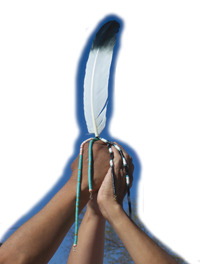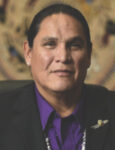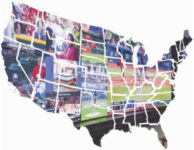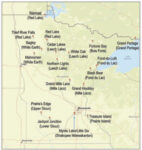
As the 112th Congress begins to implement its legislative agenda, tribal governments are ready to join the battle to protect gaming in Indian Country. Even in a year where the federal budget takes center stage in Washington, Indian gaming issues always arise, whether it is in the context of internet gaming, attempts to amend the Indian Gaming Regulatory Act, oversight of the National Indian Gaming Commission or land into trust issues, to name just a few. Effective advocacy from Indian nations will once again be essential to support gaming operations on native lands. So here are the “Top Five” rules for advocacy before Congress and the executive branch:
1. Present a Clear, Powerful Message
Whether a message is for business sales, an advertising campaign or legislative and executive branch lobbying, the message must be clear and understandable with a strategy to achieve results. Some messages are readily identifiable—like, “The new tribal gaming facility will create 1,000 jobs and enjoy the support of the local community.”
Other messages are more complex, particularly when they require an understanding of tribal history, government policy and legal theories. Presenting the issue in the form of a concise briefing paper, letter or PowerPoint presentation can bring clarity to the issue. Charts, graphs and visual aids can also be invaluable in honing the message. The attention span of most federal and congressional officials is most focused at the start of a meeting, so the message and request for action should be summarized at the start with the details to follow during the remainder of the presentation.
As a former deputy assistant secretary for Indian affairs at the Department of the Interior, I presided over dozens of tribal presentations that ranged from brilliant and sometimes even emotional to others that were baffling, confusing and muddled, leaving me with little quality information to pursue the particular issue. Even with sympathetic federal and legislative officials, a well-articulated and supported request will increase the chance of success.
The recent nationwide effort to reverse the onerous effects of the disastrous United States Supreme Court decision in Carcieri v. Salazar is a good example of such advocacy. Tribal officials showed that restrictions on the secretary’s ability to take land into trust affected not just a small number of gaming acquisitions but more importantly affected acquisitions of land for clinics, schools, energy projects, housing and a host of other non-gaming projects.
Even though a legislative victory was not ultimately achieved, the Obama administration (after some initial missteps related to California Senator Dianne Feinstein’s draconian approach) and many key House and Senate members incorporated and expanded the tribal message. Submission of the individual non-gaming projects affected by the Carcieri decision and the accompanying jobs and social data at risk as a result of the decision were also key to a powerful, clear message.
One additional point applies to powerful, clear messages before Congress. For some reason most presenters at congressional hearings do not practice their opening statements, which can often detract from their message. Practice and familiarity with an opening statement is always a good use of time. Even better is to present the opening statement without reading since all will be submitted for the record. Engaging the committee with direct eye contact is a means to immediately secure the attention of the audience and keep committee members off their BlackBerries.
In addition to clear visual aids and photographs, developing “friendly” testimony questions during a hearing can enhance congressional testimony. Addressing the opponent’s arguments in advance can dilute the opposition message.
2. Travel to Washington, D.C. and Lobby at Home
Executive branch and congressional lobbying is most effective when tribal leadership invests the time, budget and travel necessary to work the issue. Tribal participation is critical on Washington, D.C., lobbying visits. While an effective, experienced law firm and/or lobbying firm can also be retained for good results, the priority shown by the presence of tribal leaders carries greater weight with decision-makers than non-tribal representatives.
Tribal participation in key meetings is also necessary so that the outcome can be explained to tribal citizens back home. Firsthand knowledge by tribal officials of what is supported or opposed in a Washington, D.C., meeting is far superior to reading a written report, which simply cannot capture the nuances, body language, or value of direct observations. At times, repeated visits will be necessary to keep the issue from getting lost in a sea of federal priorities.
In addition to Washington, D.C., travel, effective lobbying can also be supplemented by lobbying at home. Many congressional members have “Congress on your Corner” events and district visiting hours. These opportunities should not be wasted. At times, it may make sense to travel regionally where federal and congressional officials may be speaking at conferences, field hearings or tribal association meetings. Even if a formal meeting is not scheduled with an official at such an event, a brief “hallway meeting” can raise the profile of the issue and keep it a federal priority. While not ideal, these informal meetings can also sometimes be the breakthrough that is needed on a case.
3. Retain an Experienced Federal Indian Law or Indian Policy Group
Alongside tribal officials, experienced attorneys and lobbyists can bring the expertise and relationships necessary to foster a positive outcome. While sometimes those in the Washington, D.C., native community are criticized by outside groups for the interconnected nature of their business and personal relationships, it is a fact of life shared by defense industry lobbyists, unions and other lobbying forces that also have close ties formed from prior service in government or on Capitol Hill.
Since the native community is very small in Washington, D.C., it should come as no surprise that a lobbyist’s former colleagues, current or former spouses, social acquaintances and sports teammates are in positions of power that may determine the outcome of an issue. These relationships do not unduly influence such decisions but can facilitate a fair hearing and consideration of the tribal position. Access to decision-makers is important but expertise is also necessary in the complex world of tribal government relations.
As the Jack Abramoff scandal demonstrated, however, sole reliance on access to power without expertise in Indian policy does a disservice both to tribal governments and federal decision makers. Fortunately, there are a host of law firms and government affairs experts in Indian policy who are well-skilled in Indian matters and, most importantly, are ethical.
4. Create Alliances at the National and Grassroots Level in NCAI and NIGA
In the modern era, Indian Country has enjoyed the resources of strong Indian advocacy organizations like the National Congress of American Indians and the National
Indian Gaming Association. Their organized Capitol Hill, White House and federal agency impact days provide tribal advocates with a number of valuable opportunities to influence Indian policy on a national and local level. When a meeting cannot be obtained with a key policy-maker like the secretary of the interior, these meetings may be the only opportunity for an advocate to present an issue to high-ranking officials. Attendance at tribal subcommittee and task force meetings presents another great opportunity to build alliances.
As in all lobbying efforts there is power in numbers. Grassroots events and communication can create strong local momentum for an issue. Social media like Facebook and Twitter can be utilized to develop “friends” of the tribe and to keep such friends involved in the issue. When letters and phone calls are needed, Facebook and the tribe’s own website can be powerful instruments.
5. Participate in the Political Process
In the political system in America, it is essential that tribal governments participate with votes, campaign contributions and volunteerism. While not lobbying in the formal sense, the work of tribal leaders in Senator Obama’s presidential campaign and native platform made the Cobell Trust reform settlement a promise and ultimately a reality. Similarly, votes and campaign contributions on a bipartisan basis to House and Senate champions of Indian Country ensure that these members will remember Indian Country after election day.
The recent election victories of Senator Lisa Murkowski (R-Alaska) and Senator Jon Tester (D-Montana) are just two examples of where the native vote was critical. As the 2012 presidential primary and general election approaches, there will be even more opportunities to participate. The 2012 Republican National Convention in Tampa, Florida, and the Democratic National Convention in Charlotte, North Carolina also present excellent opportunities to highlight native issues.

















